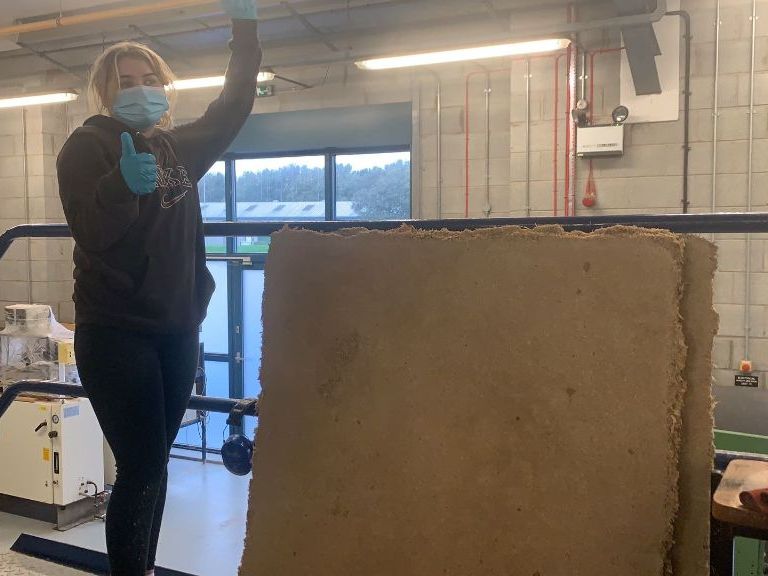Applications
How does your bio-resin compare with current traditional resins?
By harnessing Cambond’s bio-resin, we are capable of crafting wood panels, including particle boards that adhere to P1, P2, P3, P4, and P5 standard regulations. These panels are exceptionally suitable for applications such as internal furniture manufacturing and a myriad of other uses. Our product range extends to include MDF, OSB, and Plywood, all manufactured using CAMBOND’s bio-resin.
Furthermore, we have subjected these panels to rigorous standard testing to ensure their resilience in humid conditions. This meticulous testing process ensures that our panels not only meet but exceed the highest standard in Zero-Formaldehyde Added Wood Panel regulations.
Is your product creditable?
Backed by the support of Innovate UK, Cambond has successfully validated its bio-resin for wood panel manufacturing in the UK. This achievement underscores the robustness of our innovation.
Our dedication to excellence has been recognized through numerous awards. Notable among these are the EIC-Climate KIC European CleanTech Third Prize in 2014, the Shell Springboard Regional Winner in 2018, and our triumph in the Smart Buildings, Energy, and Net Zero Carbon Category for the MSDUK Innovation Challenge in 2021.
Furthermore, our global reach extends to China, where we have forged strategic partnerships with companies to utilize Cambond’s bio-resin for the production of wood, straw, and bamboo-based boards, among other bio-based products. This collaboration enables us to contribute to sustainable solutions on an international scale.
In the UK, our collaboration with FORESSO has a distinct focus on crafting visually captivating decorative products. This partnership effectively integrates our cutting-edge technology into their processing methods, resulting in aesthetically pleasing and innovative offerings.
Adhesives
Adhesives play an indispensable role across a myriad of applications, ranging from the construction industry to plastics, packaging, and the automotive and aerospace sectors.
The global production of adhesives surpasses an impressive 13 million tonnes annually, contributing to a market valued at over £34 billion.
Although the industry demonstrates a clear inclination towards environmental sustainability, the adoption of alternatives to oil and formaldehyde-based adhesives has encountered notable hurdles concerning technical intricacies and cost considerations. In this landscape, Cambond’s pioneering technology offers a breakthrough solution – a means to produce eco-friendly, formaldehyde-free adhesives on a mass scale, globally, and in a cost-efficient manner.
Remarkably, our bio-adhesive innovation has successfully replaced formaldehyde resin in the production of MDF, resulting in a significant reduction of 40% in CO2 emissions. This positive outcome is supported by a comprehensive Life Cycle Assessment (LCA) report, attesting to the tangible environmental benefits of our approach.
Wood Panel Industry
Wood panels are a vital component in construction and furniture manufacture.
They’re a huge industry, valued at £300 billion a year.
Panels are currently produced from virgin and reclaimed wood, using adhesives that are largely derived from oil.
They also use formaldehyde, a toxic chemical which is the subject of increasing regulation. Urea formaldehyde used within wood panel industry adhesives is a known cause for cancer.
With humanity seeking alternatives to fossil fuels, and greener ways to live, the woodpanel industry is actively looking for an alternative.
Lifecycle assessment studies suggest wood panels manufactured with Cambond resin enjoy reductions of more than 40% in their carbon footprint.
That leaves Cambond perfectly placed to seize the mass market opportunity of a more sustainable and healthier future.
It’s also worth noting Cambond’s advantages when compared to soy-based adhesives (soya protein-based bio-resin), and other non-formaldehyde adhesive manufacturers.
Tests show our solution is technically better, and less expensive.
Cambond has additional advantages in requiring no complex chemistry, and our process being subject to less stringent regulations.
Wood Panel Industry
Wood panels are integral to both construction and furniture manufacturing industries, with a staggering value of £300 billion annually.
It’s concerning that a vast majority, around 98%, of these wood panels emit harmful formaldehyde toxins into our living environments.
These panels are primarily composed of virgin and reclaimed wood, bonded using adhesives that largely stem from oil-based sources.
Issues arise from the presence of formaldehyde in these adhesives, which not only harms the environment but is also a proven carcinogen. The repercussions are clear – regulatory bodies are tightening restrictions on such toxins, potentially rendering businesses unable to sell their products. Additionally, the risk of lawsuits and reputational damage looms for companies persisting with these hazardous materials.
The consequences of oil-based, man-made materials are far-reaching, impacting everything from our built environment to aquatic habitats and human health. In particular, the construction sector contributes about 20% of all carbon emissions, primarily due to non-eco-friendly materials. While strides are being made to enhance eco-standards in the £370 billion wood panel industry, up to 20% of the materials remain oil-based, containing toxic formaldehyde.
Efforts to replace formaldehyde-based resins have encountered challenges, prompting the industry to seek solutions for reducing formaldehyde emissions. Currently, setting emissions standards across various countries is a viable interim measure.
Enter the CAMBOND solution. Envision a world where houses, furniture, decorative boards, and flooring are constructed using renewable biomass and bio-based glue, devoid of toxic chemicals and at an affordable cost. In such a scenario, concerns about volatile organic chemical (VOC) emissions and product end-of-life fade, as all components are natural and biodegradable. This solution stands as carbon-negative, free from VOC emissions, and cultivates a green living environment.
Cambond’s contribution to this endeavor is through a technological platform. We empower the global wood panel industry to replace traditional formaldehyde-bonded boards with CAMBOND’s biodegradable, carbon-negative, and zero-formaldehyde bio-adhesive, all while maintaining competitive costs.
Stick with Nature, Stick with Cambond

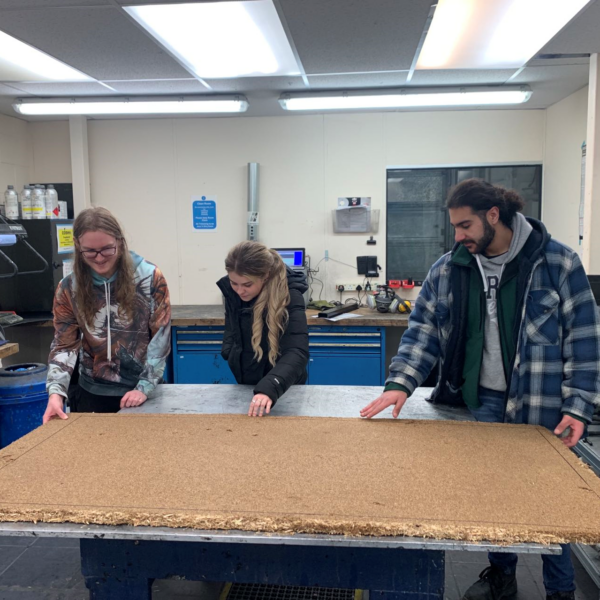
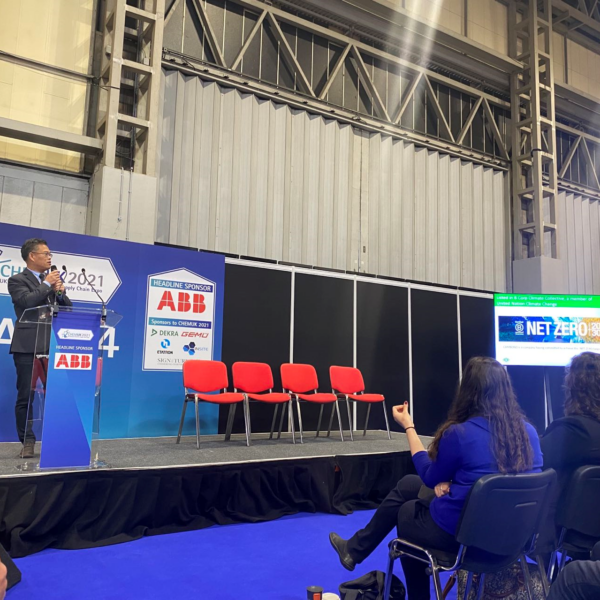
The Benefits of our Bio-resin
Our award-winning bio-resin effectively eliminates the necessity for oil extraction and the utilization of hazardous chemicals. What’s more, it operates within a completely carbon-neutral and sustainable framework.
Applying our bio-resin aligns seamlessly with the methods you’re accustomed to with traditional resins. You won’t require additional procedures or specialized equipment to handle it.
Derived from discarded materials from the brewing industry and combined with algae, this concoction is skillfully bound by our proprietary linking agent.
Notably, this process yields an impressive 80% reduction in CO2 emissions. Given its complete biodegradability, its utilization significantly curbs the environmental harm caused by plastic waste.

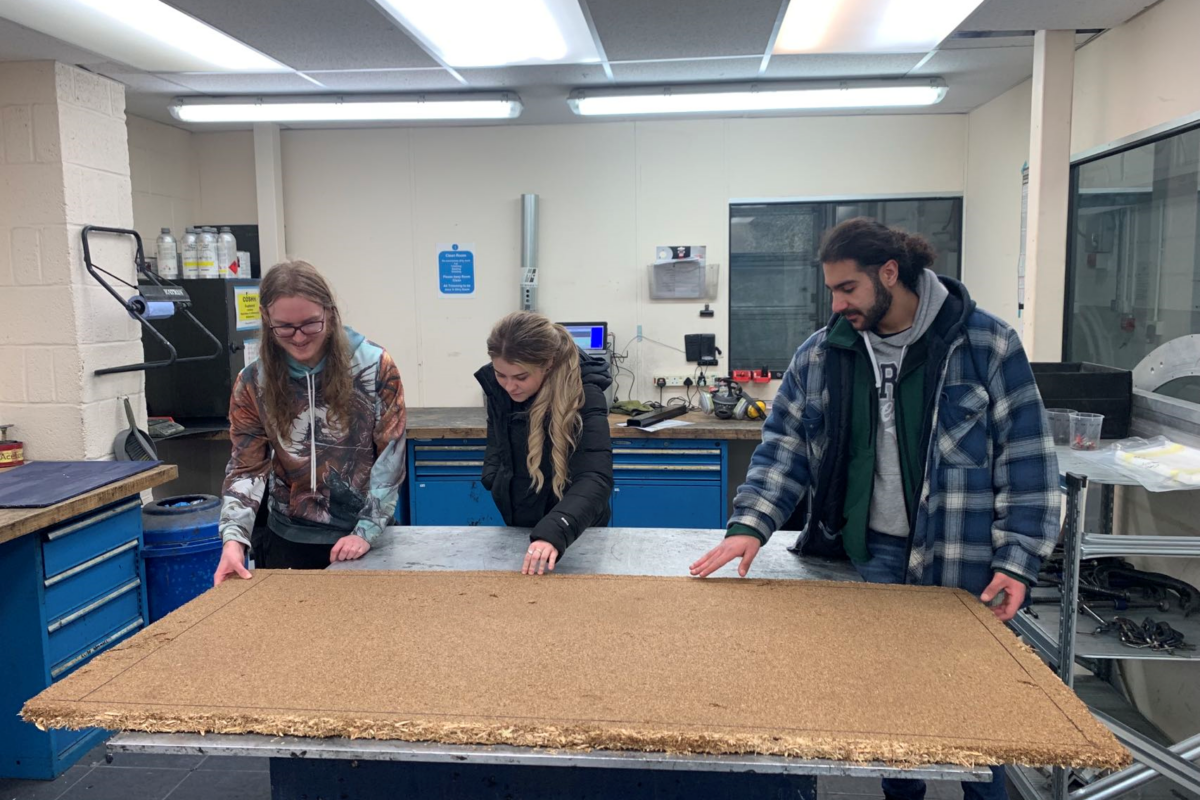
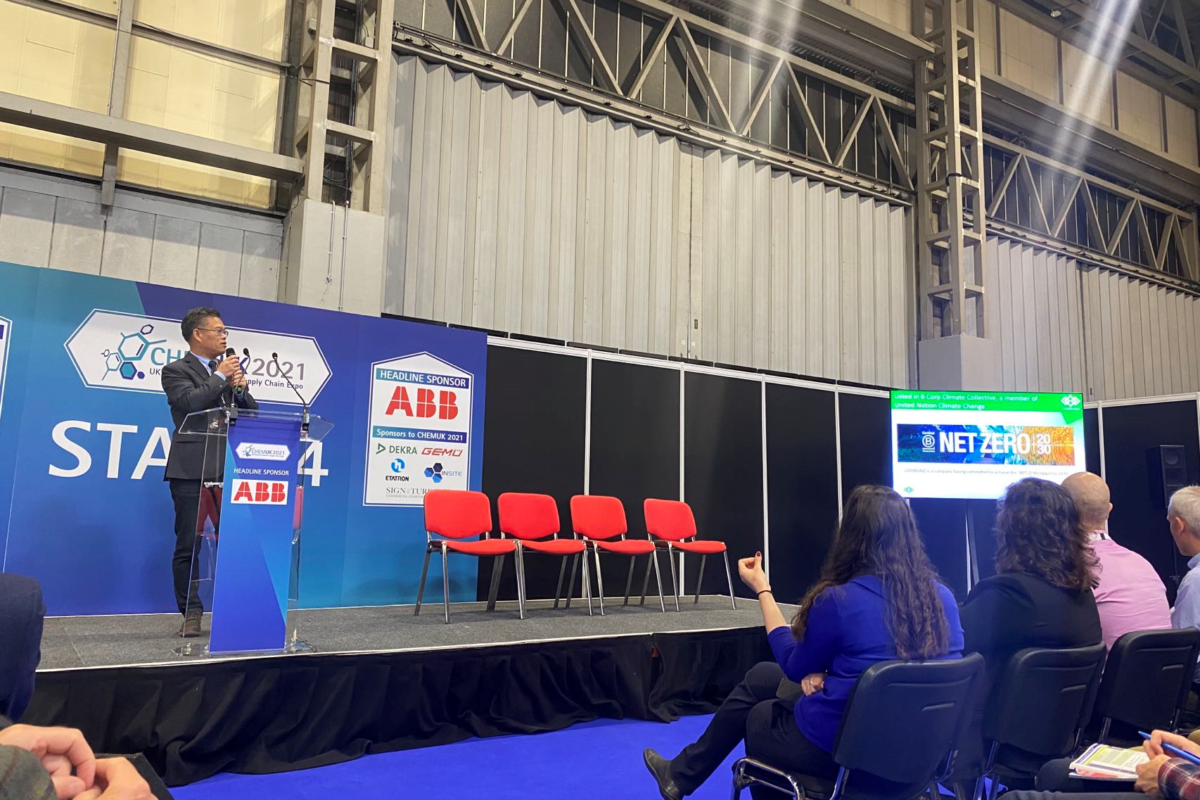
The Benefits of our Bio-resin
Our award-winning bio-resin removes the need for oil extraction and the use of dangerous chemicals and is completely carbon neutral and sustainable.
The application of our bio-resin is similar to that of traditional resins you’re used to using, meaning you will not require any extra steps, nor will it need any specialist equipment to handle when using it.
It’s made from brewing industry waste along with algae, all powerfully bonded together with our special linking agent.
The process cuts your CO2 emissions by 80%. Being completely biodegradable, you will be greatly reducing the damage inflicted upon the environment from plastics.
The Benefits of our Bio-resin
Our award-winning bio-resin removes the need for oil extraction and the use of dangerous chemicals and is completely carbon neutral and sustainable.
The application of our bio-resin is similar to that of traditional resins you’re used to using, meaning you will not require any extra steps, nor will it need any specialist equipment to handle when using it.
It’s made from brewing industry waste along with algae, all powerfully bonded together with our special linking agent.
The process cuts your CO2 emissions by 80%. Being completely biodegradable, you will be greatly reducing the damage inflicted upon the environment from plastics.
What can our Bio-resin do for you?
Cambond’s bio-resin can be used as an adhesive to create a variety of products, from building materials to household items for you to use in everyday life.
We have made particle boards with brewer’s spent grain and paper sludge for the surface, bound together with our bio-resin, creating a safer alternative for your households and workplaces. We have also made plywood boards using our resin, and are able to create them with only cold pressing, removing the need for you to heat and cutting back on your energy consumption.
Cambond can also make plates, cups, and small bags by combining waste materials, such as brewer’s spent grain, and our bio-resin. A way for you to make a healthy switch to save our environment.
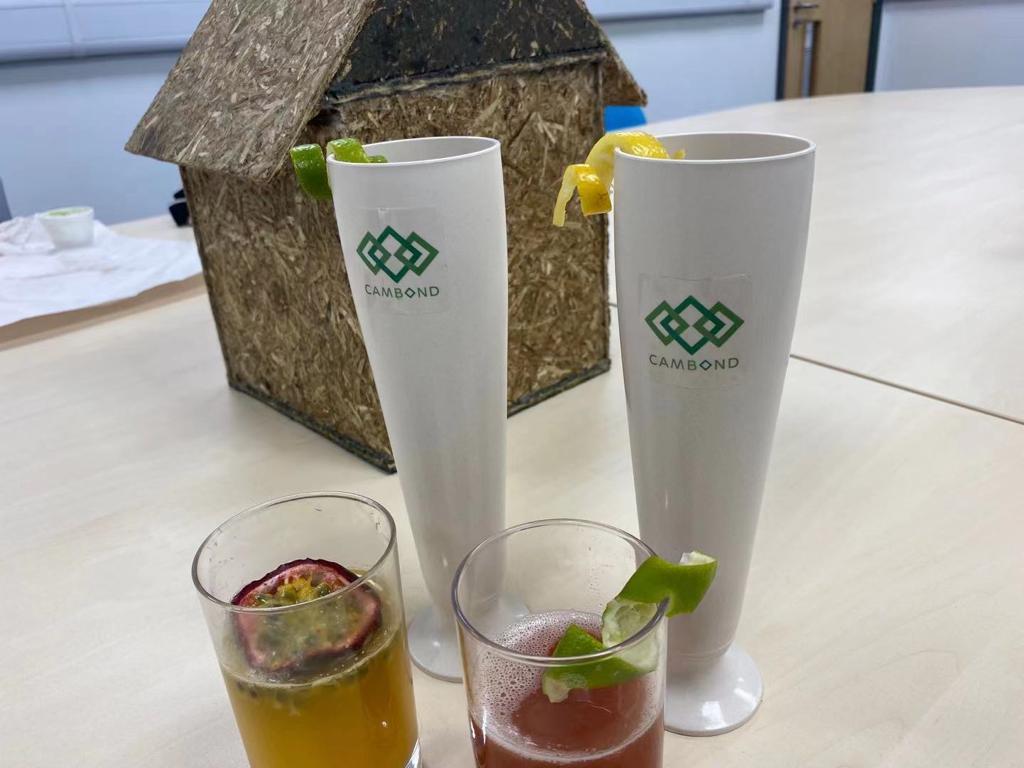
Drinking flutes created from Brewery Spent Grain using Cambond's bio-resin as an adhesive.
